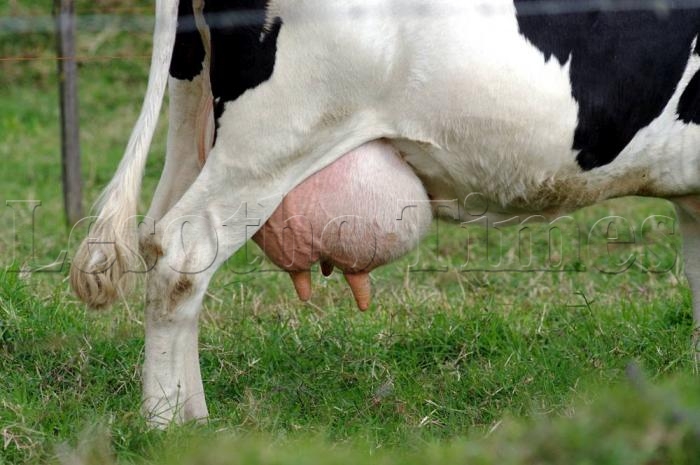Bereng Mpaki
THE Lesotho National Dairy Board yesterday handed over 50 pregnant heifers to dairy farmers in Maseru.
The project is meant to improve local milk production after the Lesotho Dairy Products (LDP), the only local milk processor, stopped importing raw milk from South Africa.
LNDB chief executive officer Abiel Mashale yesterday told guests that local milk production has improved in the last two years and this has resulted in LDP stopping raw milk imports.
The increase in local production has even resulted in Lesotho exporting some of its milk to South Africa. The exports are however, nominal.
Mr Mashale yesterday said the 50 pregnant heifers that were imported from South Africa would further strengthen the local dairy industry.
This is the third delivery of cattle which the LNDB facilitated for the farmers since last year. The first delivery was done last year, another was done in March this year. To date, 108 heifers have been delivered.
The cattle were purchased from South African breeders. The heifers are of the jersey and friesland breeds.
“When I came into the dairy industry in 2017, I was greeted by a high shortage of milk production in the country and high dairy imports for processing,” Mr Mashale said.
The value of dairy imports at the time was averaging M300 million annually, a practice which he said was benefiting South Africa more than Lesotho.
“The LNDB we embarked on a mission to revive the dairy industry and among other things, we revived artificial insemination to increase the numbers of dairy cows. This campaign has led to production of close 1 000 calves to date.”
LNDB has also helped to resuscitate previously inactive milk collection centres in different districts.
“I am proud to inform you that dairy farmers have scaled up their production to a point where we no longer have to import raw milk from South Africa for processing. We have also recently exported raw milk to South Africa,” Mr Mashale said.
He said Lesotho’s spending on raw milk imports has declined from M11 million per annum in the 2017/18 financial to M460 000 in the 2018/19 financial year to zero in the 2019/20 financial year.
“I therefore implore you to keep up the good work with these animals you are receiving today.
“Their arrival will improve milk production so much that LDP may soon be overwhelmed with oversupply. This means there is an opportunity for investment in dairy processing infrastructure.
“Those who may be interested in this investment should approach us so that we can help them in their quest.”
One of the beneficiaries, Lebohang Motsoaole from Berea district, who now has four dairy cattle, expressed gratitude to the LNDB.
“As a beginner, the LNDB’s assistance has been welcome because I would not know the right agents to engage and the breeders to buy from. They have also helped us by equipping us with the relevant training on how to raise the animals in a proper way for them to be productive. The LNDB also contributed part of the animals’ transportation costs,” Mr Motsoaole said.

